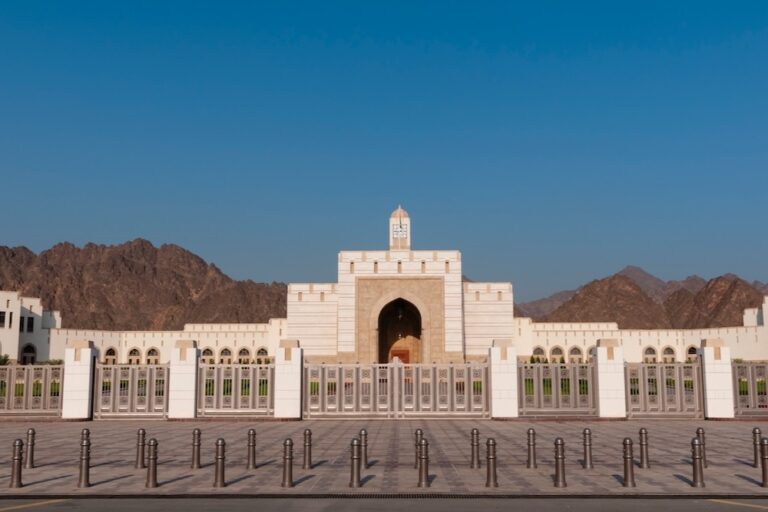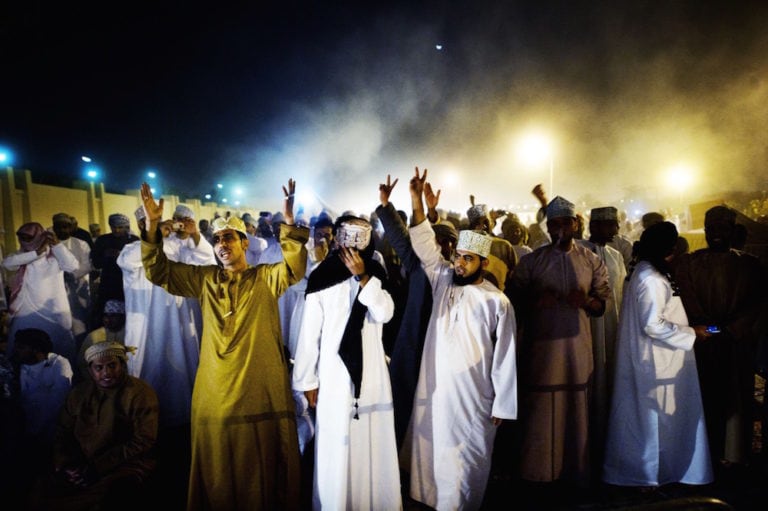The three arrests of Azamn journalists are not isolated incidents. The Government of Oman has been recently stifling expressions of free press and free speech.
The following statement was originally published on adhrb.org on 12 August 2016.
In an attempt to stifle freedom of speech, Omani authorities have recently arrested three journalists from Azamn daily newspaper in connection to an article that was published on 26 July 2016. Officials believe the article criticized the country’s judiciary, and used this as the basis for the journalists’ arrests. On 9 August 2016, Oman’s Ministry of Information took further action, suspending Azamn and ordering its website to shut down.
The article in question is titled “Supreme bodies tie the hand of justice.” It accused Ishaq Al-Bousaidi, the Head of Oman’s Supreme Court and the Chairman of the Judicial Council, of intervening in judicial proceedings concerning an inheritance dispute on the behalf of influential officials. On 28 July 2016, two days after the article was published, Omani police summoned Al-Ma’mari, the founder and editor-in-chief of Azamn, under orders of the public prosecutor. Omani Newspaper Atheer reported that the Omani public prosecution office was investigating Al-Ma’mari for various charges that include, “publishing false news, undermining the prestige of the state, and disturbing public order.”
Journalist Zaher Al-Abri, who oversees the Azamn’s local coverage, told the Committee to Protect Journalists (CPJ) that Oman’s Ministry of Information ordered Azamn not to publish further details on the story related to the Omani judiciary. In protest, the newspaper has published a blank space on its front page every day in August.
On 3 August 2016, the Internal Security Department, Oman’s intelligence service, detained Al-Abri without formal explanation or charges. Despite the arrests and the Ministry’s orders, Yusef Al-Haj, the deputy editor-in-chief of Azamn, continued to work on the story in question. On 7 August 2016 and 9 August 2016, Al-Haj published parts of an interview with Vice President of Oman’s Supreme Court, Ali Al-Nu’mani, who corroborated the Azamn’s account of corruption in Omani Judiciary. Following the interview’s publication, Omani authorities arrested Al-Haj and held him in the headquarters of the Police Special Division.
Omani News Agency published a statement from an unnamed official criticizing the work of a “local newspaper” and called it “a flagrant violation of the limits and ethics of freedom of expression which is an authentic value advocated by Omani society.” The statement also said that the work of that newspaper “used freedom of expression to harm an essential part of the country which is the judiciary.”
The three arrests of Azamn journalists are not isolated incidents. The Government of Oman has been recently stifling expressions of free press and free speech. Earlier this year, Omani authorities detained Al-Mu’tasim Al-Bahlani, the editor-in-chief of the online newspaper Al-Falaq, over his activities on Twitter and an article that investigated corruption cases in Oman. Al-Bahlani was released on 28 July 2016, two days after his detainment. He also suspended his Twitter account following his release. In April 2016, Omani security forces also arrested Abdullah Habib, a writer and a filmmaker, and Sulaiman Al-Ma’mari, a novelist, for comments they made on social media that were critical of the government’s performance. They were both released in May without being charged.
Commenting on the recent events in Oman, Sulaiman Al-Ma’mari stated that, “the situation is getting worse and worse when it comes to [human] rights and freedoms in the sultanate.” Amnesty International warned against a “growing crackdown on freedom of expression in [Oman].”
The Omani government must immediately and unconditionally release the detained Azamn journalists and reverse its decision to shut down the newspaper and its website. Omani officials must protect and ensure the freedom of expression and the freedom of the press. Authorities need to allow journalists to report on private and public issues without fear of government reprisal or punishment. Until these criteria are met, the government’s practices will continue to directly stifle the human rights of journalists and Omani citizens alike.


